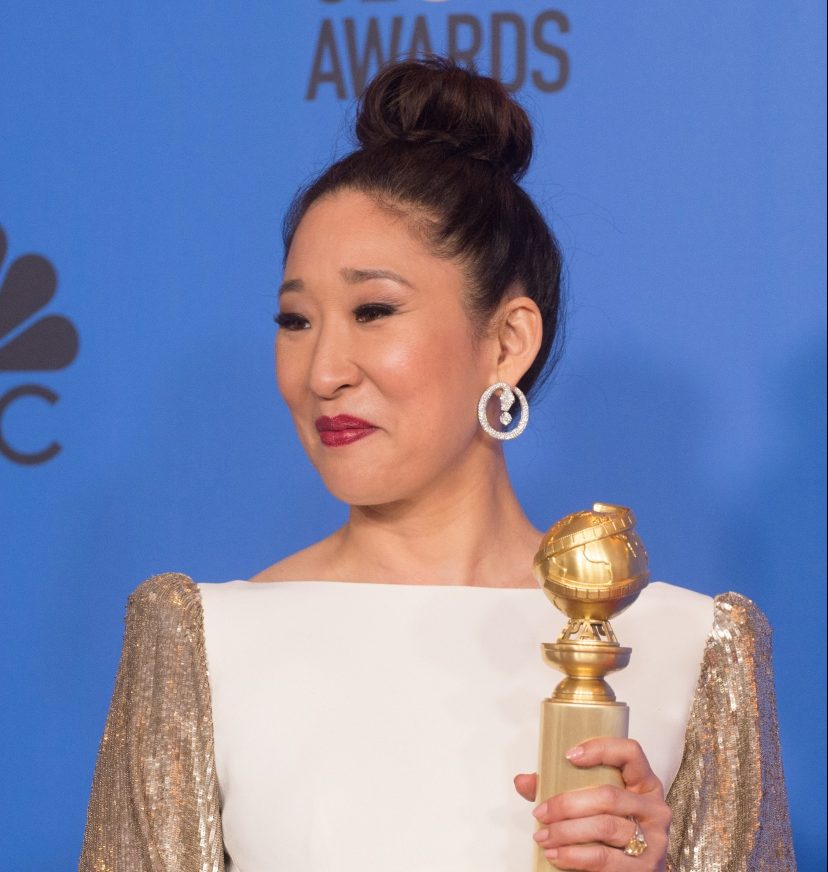
Golden Globes Have Long History of Recognizing Asian Pacific Talents on TV
The Golden Globes have recognized Asian talents in film since the 1950s, and on TV as early as 1981. Japan’s Yoko Shimada won as best actress in a television series-drama for playing Mariko in the nine-hour miniseries, “Shogun.” Since May is Asian American Pacific Islander month in the U.S., it’s worth remembering Shimada and other notable Globe winners and nominees.
Decades later, in 2006, Korean-Canadian actress Sandra Oh bagged the supporting actress in a series, limited series or motion picture made for television for her work as Cristina Yang on “Grey’s Anatomy.” “I feel like someone set me on fire!” the surprised Oh said in her speech.
In 2019, Oh made history again when she won actress in a television series-drama for “Killing Eve.” She became the first Asian-Canadian and the first of Asian descent to triumph in a lead role 38 years after Shimada won.
Oh, born to Korean immigrant parents who attended the 2019 show when Oh became the first Asian actress to host (or co-host) the Golden Globes. She told the press backstage after her historic win, “I am just slowly kind of landing into this room with you. The win is so surprising. Also, I was so stressed about hosting that I couldn’t give it one-second thought. This is one of the most incredible nights of my life, so I am incredibly grateful.
“My parents are amazing people and Internet sensations and they are so happy. For Asian kids to make our parents happy, it is so fulfilling.”
During the opening monologue with co-host Andy Samberg, Oh took a moment to explain why she agreed to co-host duties. She told the audience, “I said ‘yes’ to the fear of being on this stage tonight because I wanted to be here to look out into this audience and witness this moment of change, and I’m not fooling myself. Next year could be different, it probably will be, but right now, this moment is real. Trust me, it is real, because I see you, and I see you, all of these faces of change, and now, so will everyone else.”
That night, another historic moment happened when Filipino-American actor Darren Criss bagged the prize as actor in a limited series, anthology series, or a motion picture made for television for playing serial killer Andrew Cunanan in Ryan Murphy’s “American Crime Story: The Assassination of Gianni Versace.” He became the first Filipino-American to get the award.
During his acceptance speech, Criss said it’s been “a marvelous year for representation in Hollywood. And I am so enormously proud to be a teeny, tiny part of that as the son of a firecracker Filipino woman from Cebu who dreamed of coming to this country and getting to be invited to cool parties like this.
“So, Mom, I know you’re watching this, you are hugely responsible for most of the good things in my life. I love you dearly, I dedicate this to you.”
In an interview, Criss pointed out, “My mom was the youngest of seven from the Philippines. She grew up idolizing American culture, movies and music.”
In 2016, Aziz Ansari, an actor born to Indian immigrants, was nominated for actor in a television series–musical or comedy for “Master of None.” He won in 2018 when he was cited again for the series.
In 2022, the much-talked-about South Korean TV series, “The Squid Game” garnered three Golden Globe nods — television series-drama, performance by an actor in a television series–drama (Lee Jung-jae) and performance by an actor in a supporting role in a series, limited series or motion picture made for television (Oh Young-soo, who went on to win).
Two years later, “Beef” got three nominations under the category, television limited series, anthology series or motion picture made for television: series (creator Lee Sung Jin), actress (Ali Wong) and actor (Steven Yeun). It won all three.
Wong and Yeun made a splash when they won for their performances in the road-rage drama. Wong became the first actress of Asian descent to triumph in this field. Following Criss’ pioneering earlier win, Yeun became the second actor of Asian descent to win in this category.

